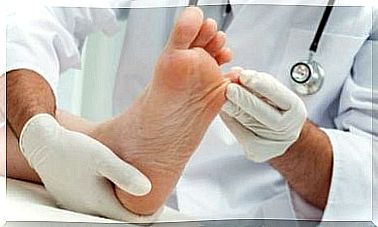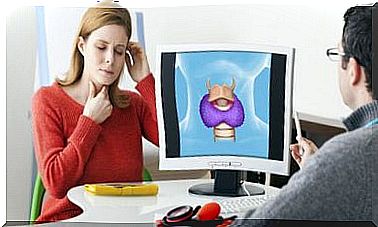7 Frequently Ignored Warnings About Thyroid Problems

Do you know what signs of thyroid problems are? These symptoms are not always clearly noticeable, and this time we want to tell you where you can conclude that there is a disorder in your thyroid gland . So keep reading and keep the following instructions in mind!
What are Thyroid Glands?
The thyroid glands are butterfly-shaped glands located in the neck just above the clavicle. They are the endocrine glands that produce hormones.
The hormones in this gland are responsible for the rhythm of many of your body’s activities, such as how fast you burn calories and what your heart rate is.
All of these factors make up your metabolism.
What are the signs of thyroid dysfunction?
1. Fatigue and irritability

Disorders of the thyroid gland can affect the amount of energy and a person’s mood.
- If you experience hypothyroidism, you may experience severe fatigue and weakness.
- In addition, there are often sleep problems, anxiety, and irritability.
2. Changes in heart rate
The thyroid glands affect virtually every organ in the body and may also affect the heart rate. Remember that the normal heart rate is 60-100 beats per minute.
Determining whether your heart rate is significantly lower or higher than the normal value is easier than you think. Just stop for a moment and look at your own body.
3. Changes in weight

Sudden changes in weight are an essential sign of thyroid problems. This is actually one of the most common symptoms.
Gaining or decreasing weight in a short period of time may mean that there is an imbalance in your thyroid hormones.
4. Dry skin and brittle nails
Dry and itchy skin can be a sign of thyroid problems. If this is the case for you, your nails will also break more easily.
5. Poor body temperature regulation

Disorders in these glands may affect the body’s ability to regulate temperature. You may be hot or cold, and this may manifest as excessive sweating and suffering from heat.
6. Swelling in the neck
Nodules in the neck are another clear sign that there may be some disorder in the thyroid gland.
If you notice new bulges in your neck, go to an expert’s office to find out if there is any imbalance regarding these glands.
7. Muscle pain

Muscle pain is another symptom of hypothyroidism, and a person may have pain all over the body.
These symptoms are related to swelling in the muscles or nodules that compress the nerves, so if you notice this symptom, see your doctor.
Check that everything is OK for thyroid function
If you suspect you may have hypothyroidism, you can check this, especially in the afternoon or night and in several ways.
At night, for example, you can swallow a mixture of 5% iodine and draw iodine lines on both of your wrists.
This is done because the thyroid glands are paired organs, and each of these glands functions differently.
In the morning, then see which wrist has absorbed more iodine, that is, look at where the iodine has disappeared completely.
Areas where iodine is absorbed have a greater need for this mineral.
- If you see that the iodine you put on your wrists has disappeared from the right side, you know you have hormonal imbalances on the right side of your thyroid gland.
- If, instead, the iodine disappears from the left side, the problem is with the thyroid gland on this side. In general, it can be said that the problem occurs on only one side of the thyroid gland.
While these symptoms are not in themselves sufficient signs to diagnose the problem on your own (as these symptoms are often present in other disorders as well), remember that if you notice them in yourself, you should not ignore them.
The best thing you can do in this situation is to see a doctor and have your health checked.









